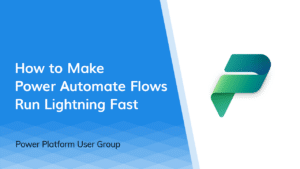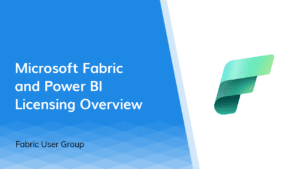Customer data platforms, or CDPs if you prefer, are often considered essential all-in-one data management tools for marketing teams. CDPs allow marketing teams to access a wide range of consumer data in one place and provide actionable marketing insights.
At first glance, the concept of a CDP sounds like a game-changer. And in many ways, it is.
But what if there was a way to make the concept of a CDP more flexible for the rest of the organization (not just marketing)? And what if there was a way to provide even more actionable insights? Right now, CDPs run separately from your data warehouse, and they are limited in the types of insights they provide and the ways they can be customized.
This is where an industry-specific AI platform comes in. Skypoint’s AI platform is essentially an “unbundled CDP” that centers around a data lakehouse that serves as a single source of truth with data that has been cleaned and justified.
Unbundling The CDP: How Does It Work?
With a traditional CDP, the data warehouse is a separate entity from the CDP itself. Batch data moves through the ETL (Extract Transform Load) process to the data warehouse, while event data goes into the CDP.
In this situation, the CDP is completely separate from the data warehouse. This means that analyzing data outside of the CDP environment is fractured and creates yet another data silo.
With an unbundled CDP, the data warehouse or data lake serves as the center of the system and provides an easy-to-use interface to do data transformations under the covers for things like audience segmentation, metrics, and exporting lists to campaign tools like Mailchimp or Klaviyo.
From there, your organization doesn’t need to do extra gymnastics to properly analyze your data and implement marketing changes based on the insights collected.
By unbundling the CDP, you maintain the ability to analyze your data where and when you need it while also providing Marketing team-friendly capabilities you know and love from a traditional CDP. You also get more flexibility and control over your data, which is invaluable as your organization grows and develops.
In simple terms, the real value here is that you’re gaining a strong data foundation so you’re set up to solve a vast array of business needs.
The 3 Main Benefits of an Unbundled CDP
While CDPs seem convenient and easy to use, they also limit the way you access information. There are many reasons to consider switching from a traditional CDP to an unbundled approach.
1. Data Ownership
One of the biggest advantages of using an unbundled CDP rather than a traditional all-in-one solution is that you own and have access to all of your data and can bring your own cloud subscription.
This makes the data much easier to work with, especially as your organization scales and encounters new unforeseen challenges.
In a traditional CDP, the CDP provider stores all of your event data, while batch data is stored in your data warehouse. Although you own the batch data, the separation between the batch data and the event data is very restrictive at times.
With our AI Platform, you own your data and have a solution that lives within your four walls. Your data isn’t locked up. You have control over the data, so your team is empowered to access the data and take action with it. If you’re not housing your data and having intelligent conversations with customers, your business efforts will suffer as a result.
2. No Data Analysis Limitations
Traditional CDPs have a set of data analysis tools and resources already built in, which is both appealing and valuable for smaller organizations that need simple customer insights. Yet, as your organization grows, you might find that these CDP features no longer meet your complex needs and you want more robust BI capabilities.
Our AI platform has a completely open structure with the ability for any BI tool to connect and present visualizations (i.e. Power BI, Tableau Looker). That means your organization can find more ubiquitous talent than needing very specific vendor experience to be successful.
Many CDPs have limited options for customization—if they have any customizable features at all. Those that do offer customization can be inefficient and time-consuming, which defeats the purpose of using a so-called robust tool for data analysis.
The CDP was very focused on solving data needs for sales and marketing. When you have a hyper-focused tool and a data silo for these functional areas, then you’re still not solving the crux of your business problems. You need a data warehouse AND a data stack to attack more use cases beyond sales and marketing…use cases you haven’t even thought of yet.
Using an unbundled CDP approach gives you much more flexibility along with much greater capabilities to meet your evolving organizational needs.
3. Less Coding and Setup
Although traditional CDPs may seem simple, the setup process can actually be very clunky. CDPs collect data from a variety of sources, and it can take several months to connect these data sources to get the CDP up and running. CDPs also need to be continuously updated as you use them and can quickly become labor-intensive.
An unbundled CDP has a much simpler setup process. It also requires far less coding to maintain, because you aren’t dealing with a large, clunky code base. This gives your team more time to focus on the data itself, easily extracting insights to make better business decisions, and ultimately…advance the business.
Implementing An Unbundled CDP is Easier Than You Think
Many people think that in order to use an unbundled CDP, they will have to build all of the components in-house, but this isn’t actually true. An unbundled CDP starts with your data warehouse or data lake—and provides all sales and marketing capabilities you need referencing it.
Skypoint Cloud has a data lakehouse and comes with a broad range of data management components. You don’t need to build any of these components yourself, but you do have the flexibility to configure them in the way that works best for your organization. We also have our professional services team that can help you with your implementation needs.
Intrigued? Request a demo so our team can show you how our Modern Data Stack Platform will benefit your organization.











